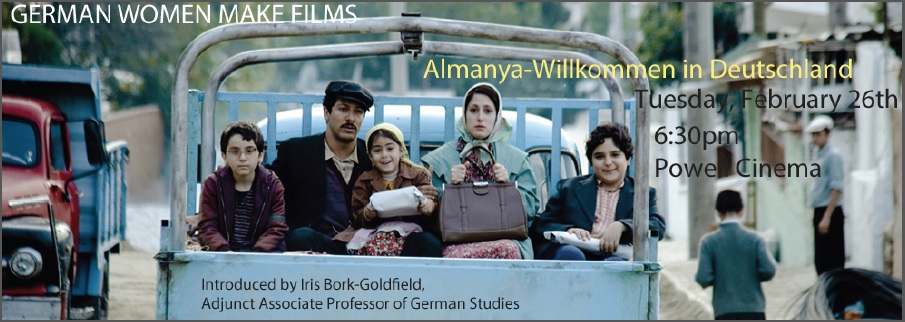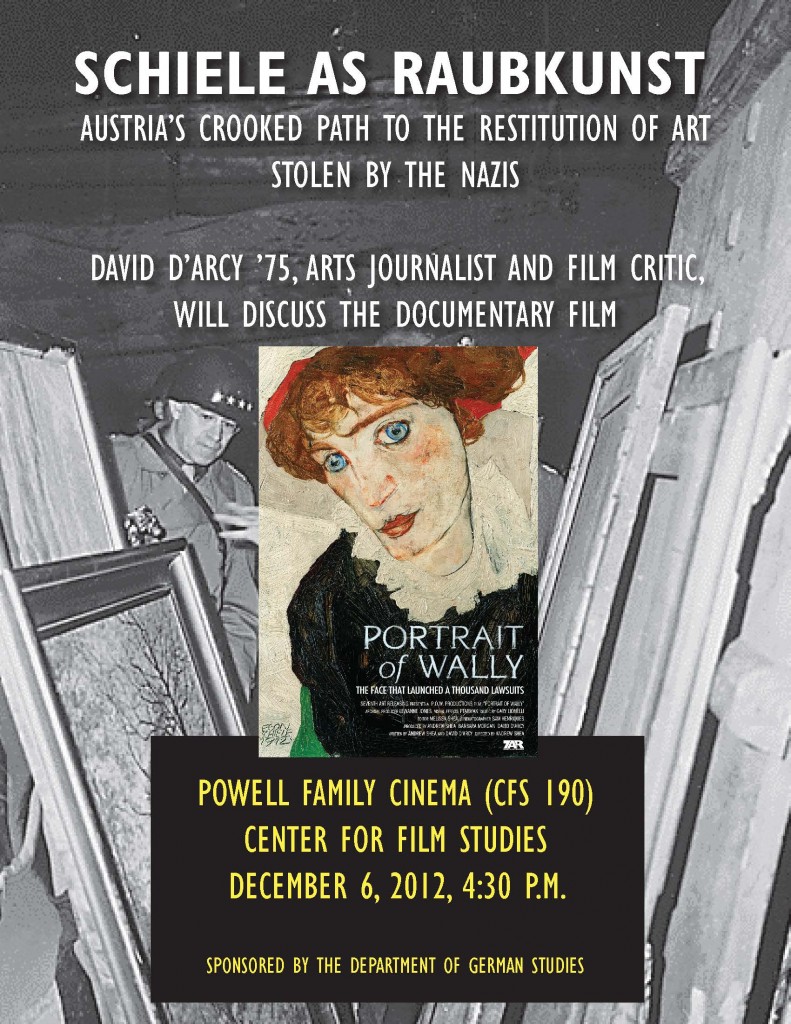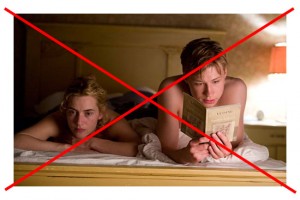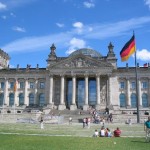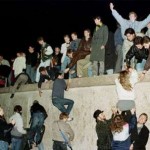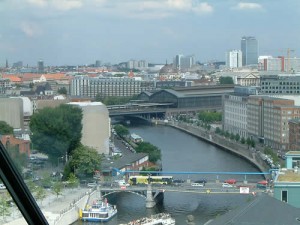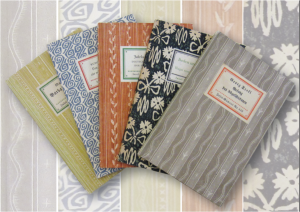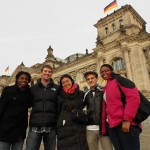| Almanya – Willkommen in Deutschland is the first movie in our spring film series. Hüseyin Yilmaz came to Germany from Turkey in 1964, and later brought his wife and children. With warmth and a sense of humor, his granddaughter recounts their family history during a family vacation back home in Turkey. An uplifting, funny film about heritage and intercultural family life. Directed by Yasemin Samdereli, 95 min., Germany 2011 Introduced by Iris Bork-Goldfield, Professor of German Studies.More Information and Trailor |
Krishna Winston Translates Günter Grass’s From Germany to Germany
Krishna Winston, the Marcus L. Taft Professor of German Language and Literature, is the translator of Günter Grass’s From Germany to Germany,  published by Houghton Mifflin Harcourt in 2012.
published by Houghton Mifflin Harcourt in 2012.
In January 1990, just months after the fall of the Berlin Wall, Günter Grass made two New Year’s resolutions: the first was to travel extensively in the newly united Germany and the second was to keep a diary, to record his impressions of a historic time. Grass takes part in public debates, writes for newspapers, makes speeches, and meets emerging politicians. He talks to German citizens on both sides, listening to their bewilderment and their hopes for the future. Ideas for stories take root—his novels The Call of the Toad and Too Far Afield.
From Germany to Germany is also a personal record. Grass reflects on his family, remembers his boyhood, and comments on the books he is reading, the drawings he is making, and the sumptuous meals he cooks for family and friends. The picture that emerges—not only of the two Germanys struggling for a single identity but of a changed world after the end of the Cold War—is engrossing, passionate and essential for anyone who wants to understand Europe’s new leading nation.
Jan. 25, 2013 by David Low
Krishna Winston to Attend Günter Grass Translators Gathering in Germany
 Krishna Winston, the Marcus L. Taft Professor of German Language and Literature, will attend a translators working meeting with Günter Grass Feb. 10-14 in Lübeck, Germany. Grass, 85, is novelist, poet, playwright, artist and sculptor. He received the Nobel Prize in Literature in 1999.
Krishna Winston, the Marcus L. Taft Professor of German Language and Literature, will attend a translators working meeting with Günter Grass Feb. 10-14 in Lübeck, Germany. Grass, 85, is novelist, poet, playwright, artist and sculptor. He received the Nobel Prize in Literature in 1999.
Prof. Winston has translated several of Grass’s works, including his 1990 diary, From Germany to Germany, which was published by Houghton Mifflin Harcourt in November 2012.
“It’s a pretty special thing when translators can sit down with the author for several days and hear from him directly what they should pay attention to, what was in his mind when he wrote certain passages, and what historical, political, literary, or other background they may need in order to get the translation right,” Winston said.
Grass maintains an office in a historic building immediately adjacent to the GG Haus, a museum dedicated to literature and the visual arts, with a special emphasis on Grass’s work in both areas and on other artists with multiple talents.
Jan. 25, 2013 by Olivia Drake
Peter Handke in America
 Friday, December 7th, 6:30 p.m. Deutsches Haus at New York University, 42 Washington Mews New York, NY 10003
Friday, December 7th, 6:30 p.m. Deutsches Haus at New York University, 42 Washington Mews New York, NY 10003
Please join the German House in New York City for a discussion with Fatima Naqvi (Rutgers University), Christoph Bartmann (Goethe Institut NYC), Klaus Kastberger (University of Vienna), Heike Polster (University of Memphis), Krishna Winston (Wesleyan University), and Thorsten Carstensen (The Indiana University School of Liberal Arts).
Peter Handke in America is an important theme for understanding the writer’s work. Because of his life-long fascination with America, Handke was among the first German-speaking writers of his generation to present a positive image of the United States against the anti-imperialist aversions of the European 1968-movement. Particularly in his early work, scholars have traced his fascination with writers such as John Ford, Walker Percy (whom he also translated), as well as the blues, New York City, the image of the “Native American” and with the beauty of the American landscape. His 1971 novel Short Letter, Long Farewell makes his fascination with the United States the central motif. Handke also lived in New York (after lengthy travels through Alaska), where in 1979 he wrote his important novel The Long Way Round. In his film Three American LPs, he co-produced with Wim Wenders, many of these themes can also be clearly identified. More information
You can watch some of the discussion on Youtube.
William C. Donahue, “Domesticating the Holocaust: Our Twisted Love Affair with Bernhard Schlink’s The Reader.”
William Donahue, Professor of German and Professor of Literature as well as a member of the Center for Jewish Studies and the Center for European Studies at Duke University, will discuss new research on the reception of the Holocaust for a work in progress and for Holocaust Lite, the recently published German translation of his book Holocaust as Fiction. Bernhard Schlink’s “Nazi” Novels and Their Films. Holocaust in Fiction is “the first scholarly study to probe the ‘Schlink phenomenon’ and to analyze its profound role in coming to terms with the Holocaust. Donahue dissects the seductive, transnational appeal of his work and the ways in which popular culture more generally has contributed to the success of Germany’s normalization campaign” (Todd Samuel Presner).
Tuesday, November 13, 2012 at 7:30p.m. Downey 113
Sponsored by German Studies and Jewish & Israel Studies
STUDY IN BERLIN
Meet Jochen Wohlfeil, Adjunct Associate Professor of the Practice in German and Resident Director of Duke in Berlin
Jochen Wohlfeil, usually omnipresent in Berlin as Director of Duke University’s academic program there but in residence in Durham this semester, will give a presentation on Duke in Berlin and discuss student life in Germany’s greatest city.
Monday, November 12
4:30p.m – 5:30p.m. in Fisk 210
Hören und Diskutieren
Das German Studies Department lädt ein zu zwei Vorträgen von GRST Majors
Freitag, den 9. November um 14.00 Uhr in Fisk 404
Mari Jarris
“A Contemporary Critique of Metaphysics:
Adorno’s Nietzschean Analysis of Astrology.”
&
Katie Dean
“‘Überfrau’ oder Opfer?
The Liminal Characterization of Women in 19th Century German Drama.”
Die Vorträge sind auf Englisch, die Diskussion auf Deutsch und Englisch.
EXHIBITION OPENING RECEPTION AND TALK
SAVED FROM EUROPE: THE KALLIR FAMILY COLLECTION OF AUSTRIAN AND GERMAN LITERATURE
WEDNESDAY, OCTOBER 24, 2012 — 4:30 – 6:00 PM
SMITH READING ROOM, OLIN MEMORIAL LIBRARY
252 CHURCH STREET, MIDDLETOWN
In 1939, the Austrian art-dealer and publisher Otto Kallir fled war-torn Europe, bringing with him to New York his irreplaceable art and book collections. In New York, he started his life over, establishing a new art gallery (the Galerie St. Etienne, still operating today), a publishing house (the Johannes Presse), and becoming one of the central figures in circles of Austrian émigrés in the U.S., maintaining his many contacts to leading artistic and literary figures of his day. The Kallir family has generously donated Otto Kallir’s book collection of Austrian and German literature to Wesleyan University, highlights of which are on display in Olin Library from October 19 to November 27, 2012. The collection features first editions, signed copies, books inscribed to Kallir and his wife, fine press books, several unique manuscript items, and more. An opening reception will be held on Wednesday, October 24, from 4:30-6pm, with remarks by John Kallir (Otto Kallir’s son), and a short talk about the collection by Wesleyan Associate Professor of German Studies Ulrich Plass. The event is free and open to the public.
SPONSORED BY
The German Department, Olin Memorial Library, Special Collections & Archives, and the Friends of the Library



